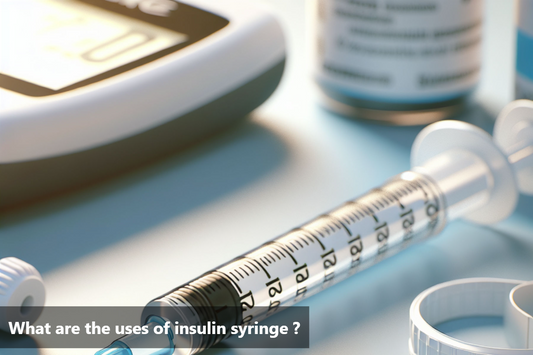Diabetes is a chronic condition that affects how the body uses blood sugar. Common symptoms of diabetes include frequent urination, increased thirst, and unexplained weight loss. However, one lesser-known symptom that can indicate diabetes is excessive sweating. When diabetes is uncontrolled, it can lead to fluctuations in blood sugar levels, triggering excessive sweating episodes. Excessive sweating, especially at night, can be a sign of hypoglycemia or low blood sugar in diabetics. This phenomenon occurs when the body is trying to regulate blood sugar levels, causing the individual to sweat profusely.
Excessive Sweating and Diabetes
Excessive sweating, also known as diaphoresis, can sometimes be associated with diabetes, especially when blood sugar levels are poorly controlled. Here's how excessive sweating may relate to diabetes:
1. Hypoglycemia (Low Blood Sugar): Excessive sweating can be a symptom of hypoglycemia, which occurs when blood sugar levels drop too low. When glucose levels fall, the body releases stress hormones like adrenaline and noradrenaline, which can cause sweating as a response to low blood sugar.
2. Autonomic Neuropathy: Diabetes can damage nerves throughout the body, including those that control sweating. Autonomic neuropathy, a type of nerve damage, can affect the nerves that regulate sweat production. As a result, individuals with diabetes may experience abnormal sweating patterns, including excessive sweating.
3. Hyperglycemia (High Blood Sugar): In some cases, persistent high blood sugar levels (hyperglycemia) can also lead to excessive sweating. When blood sugar levels are consistently elevated, the body may try to eliminate excess glucose through urine, leading to increased urination and dehydration. Sweating may occur as a compensatory mechanism to cool the body and maintain optimal temperature.
4. Infections and Skin Conditions: People with diabetes are more prone to skin infections and conditions like fungal infections and diabetic dermopathy, which can cause itching, discomfort, and sweating in affected areas.
5. Medications: Some medications used to manage diabetes, such as insulin and certain oral medications, can also cause sweating as a side effect.
Studies and Research
Several studies and research efforts have been conducted to explore the relationship between diabetes and excessive sweating, shedding light on its underlying causes, potential mechanisms, and management strategies. Here are some key findings from relevant studies:
-
Hypoglycemia-Induced Sweating: Research has confirmed that episodes of hypoglycemia, characterized by low blood sugar levels, can trigger sweating in individuals with diabetes. Studies have investigated the physiological mechanisms involved in this response, emphasizing the role of the autonomic nervous system and counter-regulatory hormone release.
-
Autonomic Neuropathy and Sudomotor Dysfunction: Autonomic neuropathy, a common complication of diabetes, has been closely linked to abnormalities in sweat gland function, leading to sudomotor dysfunction. Various studies have examined the prevalence of sudomotor dysfunction in diabetic patients and its correlation with disease duration, glycemic control, and other neuropathic complications.
-
Impact of Glycemic Control: Clinical studies have highlighted the importance of glycemic control in managing diabetes-related sweating disorders. Tighter blood glucose regulation has been associated with reduced incidence and severity of sweating episodes, underscoring the significance of comprehensive diabetes management strategies.
-
Treatment Approaches: Research efforts have explored different therapeutic approaches for managing excessive sweating in individuals with diabetes, including pharmacological interventions, lifestyle modifications, and complementary therapies. Studies have evaluated the efficacy and safety of anticholinergic medications, topical treatments, and botulinum toxin injections in alleviating symptoms of diabetic sweating.
-
Psychosocial Impact: Studies have also investigated the psychosocial impact of excessive sweating on quality of life, emotional well-being, and social functioning among diabetic patients. Research findings have emphasized the need for holistic care approaches that address both the physical and psychological aspects of sweating disorders in diabetes management.
Managing Sweating in Diabetics
Excessive sweating can be a common issue for individuals with diabetes, and managing it effectively is essential for maintaining overall well-being. Here are some practical tips and strategies to help diabetics in controlling excessive sweating:
-
Regulate Blood Sugar Levels: Keeping blood sugar levels stable is crucial in managing sweating associated with diabetes. Consistent monitoring, following a balanced diet, and taking medications as prescribed by healthcare providers can help in this regard.
-
Stay Hydrated: Proper hydration is key for diabetics to regulate body temperature and prevent excessive sweating. Drinking an adequate amount of water throughout the day is essential.
-
Choose Breathable Fabrics: Opt for loose, breathable clothing made from natural fabrics like cotton to allow better air circulation and reduce sweating.
-
Practice Good Personal Hygiene: Regular showers, especially after physical activity, can help in managing sweat and preventing any skin infections related to excessive sweating.
-
Consider Medical Treatments: In some cases, healthcare providers may recommend antiperspirants or medications to control sweating. Consult with a medical professional for suitable options.
By incorporating these tips into daily routines, diabetics can effectively manage excessive sweating and improve their quality of life. Remember, individual experiences may vary, so it's crucial to work closely with healthcare providers to find the most suitable management strategies for your specific needs.
Bottom Line
Understanding that sweating more than usual could be a sign of diabetes brings to light the importance of recognizing and addressing such bodily cues. It is imperative for individuals, especially those at risk of diabetes, to pay attention to sudden changes in their sweating patterns as it could be a signal of an underlying health issue.
Moreover, the research findings discussed underpin the correlation between diabetes and excessive sweating, emphasizing the need for further studies to enhance our comprehension of this relationship. By delving into the scientific investigations, we gain valuable insights that can contribute to better diabetes management and care for individuals experiencing excessive sweating.
Ultimately, this discussion underscores the significance of recognizing the signs of diabetes, such as excessive sweating, and seeking timely medical attention for proper diagnosis and treatment. Empowering individuals with knowledge about the symptoms of diabetes, including sweating, is pivotal in promoting proactive health management and overall well-being.
DiabeSmart is the first food range exclusively crafted for diabetics. Enjoy clinically tested, delicious products that let you keep your favorite food habits while managing your blood sugar levels effortlessly.
This Blog post is an initiative by DiabeSmart, to provide accurate and Nutritionist / Doctor approved information related to Diabetes. DiabeSmart is India's first Food brand designed specifically for Diabetics, that has been clinically tested on Diabetics and Pre-Diabetics to deliver 55% - 70% lower Sugar spikes. DiabeSmart is part of Lo! Foods - India's leading brand for Everyday Functional Health foods.















